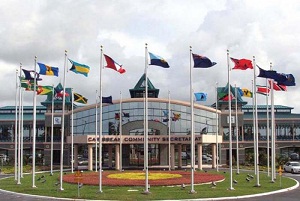 On February 16, in Placencia, Belize, the Caribbean Community (CARICOM) initiated its 27th Intersessional Meeting of the Conference of Heads of Government, with an agenda focusing on the fight against the Zika virus, the UN Climate Change agreement and financial issues, reported PL.
On February 16, in Placencia, Belize, the Caribbean Community (CARICOM) initiated its 27th Intersessional Meeting of the Conference of Heads of Government, with an agenda focusing on the fight against the Zika virus, the UN Climate Change agreement and financial issues, reported PL.
Representatives of the bloc will review the epidemiological situation affecting the region, with cases of the Zika virus reported in several islands while the Caribbean Public Health Agency (CARPHA) noted the strong possibility of the disease spreading to other countries in the area.
The organization must present an action plan to tackle the eventual spread of the virus before the forum.
CARICOM will draw up strategies to ensure that member countries benefit from the final agreement of the UN Climate Change Conference, recently held in Paris, which included some of the proposals submitted by the bloc.
Representatives will also review recommendations made by a ministerial committee regarding the risk posed to relations between regional and foreign banks as well as the possible loss of access to international financing.
The group has expressed its concern over the decision by various U.S. and European entities to withdraw financial services in the Caribbean, signaling a lack of confidence due to the arbitrary and unsubstantiated categorization of the region as a financial high risk area; a situation which will negatively impact local economies and foreign investment.
Another point on the agenda of the meeting which ended February 17, was the appointment of the new Secretary General of the Association of Caribbean States, a role to be assumed by a representative of the bloc for the 2016-2020 period.
CARICOM was founded July 4, 1973 with the signing of the Chaguaramas Treaty and is composed of Antigua and Barbuda, the Bahamas, Dominica, Trinidad and Tobago, Saint Vincent and the Grenadines, St. Kitts and Nieves, Haiti, Jamaica, St. Lucia, Belize, Barbados, Granada, Guyana and Suriname.
(Prensa Latina)